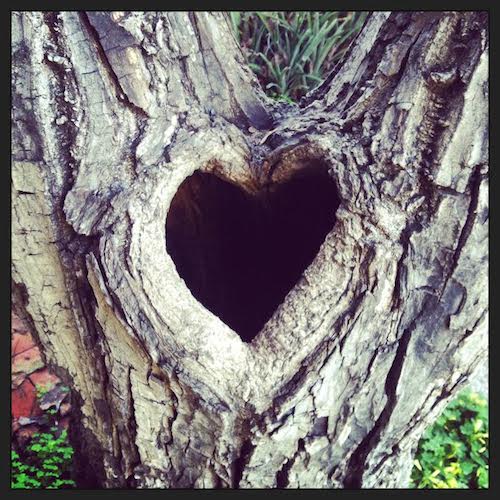Break-ups can feel like death, which makes them the opposite of birth.
However, through my experience witnessing birth as a doula and with break-ups (sometimes with partners I had fantasized about having children with), I’ve come to the conclusion they share many qualities.
They hurt.
Both experiences are labor intensive.
They remind us of our ability to be hurt, our vulnerability and require us to confront that pain.
The more resistance we have, the more it hurts. In the case of childbirth, and in most break-ups, the pain is inevitable. There is no escaping that these experiences will hurt. But the more we resist, the greater the pain.
This fact has been well documented by women and doctors around the world.
On the other hand, when a person is able to stay present with their pain (instead of denying or pushing it away), the pain can decrease. For example, Grantly Dick-Read, a British obstetrician who wrote “Childbirth Without Fear,” described the fear-tension-pain cycle that many people experience during labor.
The cycle illustrates the oscillation between mental thought and physical sensation, which creates a positive feedback loop. Part of breaking the cycle is to go towards the pain, instead of away from it. Recognizing the ways resisting pain is interfering with the process and accepting what is happening can be an advantageous strategy in the case of birth and a break-up.
Here are five things giving birth and breaking up have in common:
1. They are transformational.
When two people break up, they go from being a couple to single, but there is a third entity involved, which is the dynamic created between the people, the relationship itself. During a break-up, this third entity changes or disappears, and it can feel like a death.
The birth of a child is a separation too, perhaps the most primordial and profound kind we can experience. The process can be messy, involve screaming and some people choose drugs to deal with the pain of separation. Yet in the end, new birth arrives.
During childbirth, a person enters the world and a new dynamic is created, one of parent and child. Although one can be defined as the loss of a relationship and the other involves gaining a new relationship, birth and death are both entirely transformational processes.
2. The more support you have, the better.
Support can come in a myriad of forms. Sometimes the silent presence of a family member provides enormous strength and comfort. Other times, it is someone we love sharing his or her birth/break-up story that can help us feel less alone.
The more you know what kind of support works best for you, the better able you will be to advocate to receive that type of support.
3. They alter our identity.
Transitioning from being somebody’s girlfriend, husband, wife, boyfriend, etc. to being single can be all encompassing in part because it makes us reevaluate who we are.
Suddenly, we lose this piece of our identity we’ve constructed over months or years.
Becoming a parent is the same in that one day we’re not a parent, and the next we are. When we suddenly take on the title of “mom” or “dad,” we begin to question who we are in different contexts.
Both take some getting used to.
4. They require us to breathe.
A lot.
Our breath, which is with us every moment of our lives, can be a comforting reminder that we are there for our Self, in moments no one else is. The suffering that accompanies break-ups is often caused by agony over past experiences and fear of what the future holds.
Returning to the breath and staying with what is happening now can aid in the agony of break-ups. Similarly, slow, deep breathing can be utilized as a powerful pain management technique during contractions and birth.
5. These experiences have the power to help us heal old wounds and allow room for growth.
Deep processes such as childbirth and breaking up can evoke painful memories of previous sexual abuse, loss, trauma or death.
These wounds can wake up during these times and remind us that we’ve been hurt badly before. Simultaneously, knowing we’ve survived massive change can be strengthening. With the support of someone we trust, such as a friend, family member and/or therapist, we can work towards acknowledging our feelings and healing our hearts.
These are deep processes that affect us on physical, spiritual, emotional and psychological levels. These radical shifts in our lives can be painful, and it is through opening up to our pain that we can understand our Self better.
Taking the time to become curious and learn more about our Self, our beliefs and our behaviors is a precious opportunity that we have the choice to seize.
~
As a therapist, I’ve worked with people who continually remark that they hate their pain, wishing it would vanish overnight. These people treat their pain as their enemy, fighting it (and themselves) at every turn.
Whether you’re going through a break-up, are pregnant or going through another kind of life change, being present with your pain is a gift you can give yourself.
Relephant Read:
How to Recover From a Break Up the Healthy Way.
~
Author: Gracie Janove
Apprentice Editor: Brandie Smith/Editor: Renee Jahnke
Photo: Courtesy of the Author.







Read 0 comments and reply